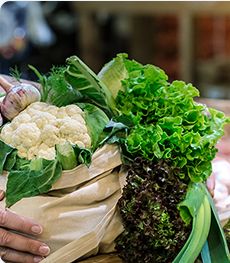Choosing the Best Ingredients for Cooking and Smoothies: A Guide to Nutritional Excellence
When it comes to cooking and making smoothies, the quality of your ingredients plays a crucial role in the taste, nutritional value, and overall health benefits of your meals and drinks. Choosing the best ingredients ensures that you get the most out of your food, whether you’re aiming for a nutrient-packed smoothie or a delicious, wholesome meal. Here’s a comprehensive guide to selecting the best ingredients for both cooking and smoothie-making.
1. Freshness is Key
- Why Fresh Matters: Fresh ingredients, whether fruits, vegetables, herbs, or spices, are richer in flavor and nutrients. As produce sits over time, it loses its nutritional value. Fresh vegetables and fruits contain higher levels of vitamins, minerals, and antioxidants, which are essential for overall health.
2. Organic vs. Conventional
- Understanding Organic: Organic ingredients are grown without the use of synthetic pesticides, fertilizers, or genetically modified organisms (GMOs). These foods are often more nutritious and free from harmful chemicals that can accumulate in the body over time.
3. Selecting the Best Fruits and Vegetables
- Ripe and Ready: For smoothies, use ripe fruits like bananas, mangoes, and berries, which are sweeter and richer in flavor. When cooking, select vegetables that are in season for the best taste and nutrient content.
4. Choosing Quality Proteins
- Lean and Clean: Whether you’re adding protein to your smoothies or cooking up a meal, opt for high-quality sources. For meats, choose lean cuts that are grass-fed or pasture-raised, which tend to have higher omega-3 fatty acids and lower saturated fat levels.
5. Healthy Fats
- Nutrient-Dense Choices: Healthy fats are essential for nutrient absorption and satiety. Avocados, nuts, seeds, and olive oil are excellent sources. For smoothies, add a tablespoon of chia seeds, flaxseeds, or a slice of avocado to boost your healthy fat intake.
6. Natural Sweeteners
- Avoiding Refined Sugars: For smoothies and cooking, it’s best to avoid refined sugars which can spike blood sugar levels and contribute to inflammation. Instead, opt for natural sweeteners like honey, maple syrup, or dates. These not only add sweetness but also provide additional nutrients.
7. Spices and Herbs
- Flavor and Health: Spices nuts and herbs not only enhance the flavor of your dishes but also provide a myriad of health benefits. Turmeric, for example, is known for its anti-inflammatory properties, while cinnamon helps regulate blood sugar levels.
8. Dairy and Alternatives
- Quality Dairy: If using dairy in your smoothies or cooking, opt for organic, grass-fed options. These tend to be higher in omega-3 fatty acids and free from antibiotics and growth hormones.
9. Superfoods and Boosters
- Adding Nutritional Powerhouses: Superfoods like chia seeds, flaxseeds, spirulina, and maca powder can be added to smoothies for an extra nutritional boost. These ingredients are rich in omega-3 fatty acids, fibre, antioxidants, and essential minerals.
Conclusion
Choosing the best ingredients for cooking and making smoothies is all about prioritizing quality, freshness, and nutritional value. By selecting seasonal, organic, and nutrient-dense ingredients, you not only enhance the flavor of your meals and drinks but also significantly boost their health benefits. Whether you’re crafting a vibrant smoothie or preparing a wholesome meal, the right ingredients can make all the difference in achieving optimal health and well-being.
